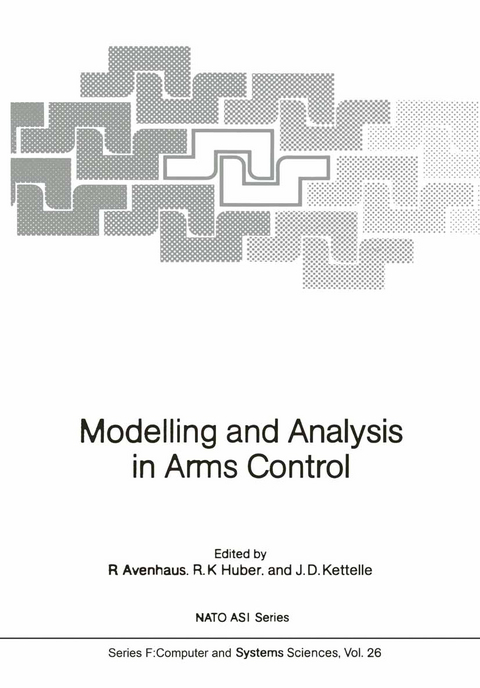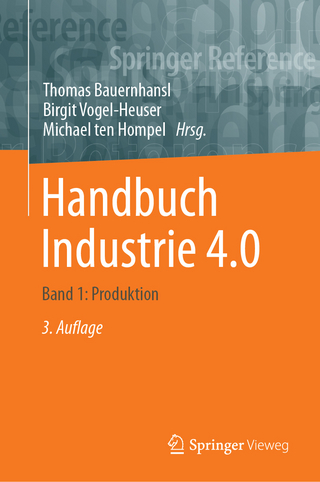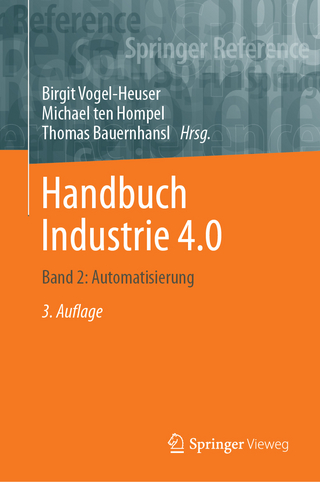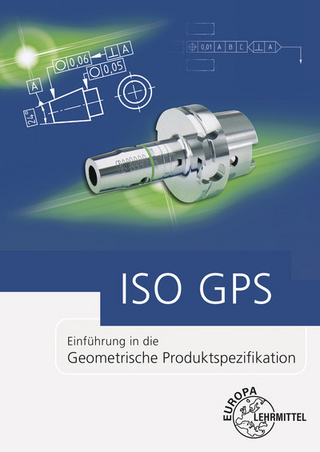
Modelling and Analysis in Arms Control
Springer Berlin (Verlag)
978-3-642-82945-1 (ISBN)
This book presents the results of an international workshop on Modelling and Analysis of Arms Control Problems held in Spitzingsee near Munich in October 1985 under the joint sponsorship of NATO's Scientific Affairs Division and the Volkswagen Foundation. The idea for this workshop evolved in 1983, as a consequence of discussions in the annual Systems Science Seminar at the Computer Science Department of the Federal Armed Forces University ~1unich on the topic of Quantitative Assessment in Arms Control 1) - There was wide agreement among the contribu tors to that seminar and its participants that those efforts to assess the potential contributions of systems and decision sciences, as well as systems analysis and"mathematical modelling, to arms control issues should be ex panded and a forum should be provided for this activity. It was further agreed that such a forum should include political scientists and policy analysts working in the area of arms control.
I History, Lessons, Issues.- Arms Control and Strategic Military Stability.- Arms Control for the Long Term.- Arms Control - Lessons Learned and the Future.- Arms Control Frustration - Understanding the Impasse and how to Break it.- Defense Outlays and Arms Control in the Election Cycle.- II Pre-Arms Control Assessment of Options and Objectives.- Report of the Chairman: What Role can Analysis Play in Illuminating Arms Control Objectives and Options.- The Use of Arms Control Negotiations Simulation as a Bridge Between Policy and Analysis.- Pre-Arms Control Assessment of the Strategic Balance: The Impact of Objectives and Approaches.- Generation of Alternative Force Configuration for Arms Control Negotiations Using Linear Programming.- Stability, SDI, Air Defense and Deep Cuts.- Pre-Arms Control Assessment of the Conventional Balance in Europe.- On Strategic Stability in Europe Without Nuclear Weapons.- Defense Expenditure Dynamics Between Two Potential Opponents.- Deterrence and Incomplete Information - The Game Theory Approach.- III Negotiations.- Report of the Chairman: Negotiation Issues.- Two-Person Bargaining Between Threat and Fair Solution.- General Ordinal 2×2 Games in Arms Control Applications.- Building a US-Soviet Working Relationship: Ideas on Process.- Problems of Flexibility in the Nuclear Arms Race.- Superpowers and Arms Negotiations: Political Climates and Optimal Strategy.- A Computerized Third Party.- IV Verification and Post-Agreements Assessments.- Report of the Chairman: Verification and Post-Agreement Assessment.- Arms Control and Strategic Defence.- The Prospects for a Satellite Monitoring Agency.- The Feasibility of Space-Based Remote Sensing in the Verification of a Treaty to Prevent an Arms Race in Outer Space.- Notes on Arms-ControlVerification: A Game-Theoretic Analysis.- On Concepts for Solving Two-Person Games which Model the Verification Problem in Arms Control.- International Atomic Energy Agency Safeguards.- Verification at the Crossroad.- Workshop Participants.- About the Authors.
| Erscheint lt. Verlag | 16.12.2011 |
|---|---|
| Reihe/Serie | NATO ASI Subseries F: |
| Zusatzinfo | VIII, 492 p. |
| Verlagsort | Berlin |
| Sprache | englisch |
| Maße | 170 x 244 mm |
| Gewicht | 860 g |
| Themenwelt | Informatik ► Weitere Themen ► CAD-Programme |
| Sozialwissenschaften ► Politik / Verwaltung ► Europäische / Internationale Politik | |
| Sozialwissenschaften ► Politik / Verwaltung ► Vergleichende Politikwissenschaften | |
| Schlagworte | arms control • Modeling • NATO |
| ISBN-10 | 3-642-82945-7 / 3642829457 |
| ISBN-13 | 978-3-642-82945-1 / 9783642829451 |
| Zustand | Neuware |
| Informationen gemäß Produktsicherheitsverordnung (GPSR) | |
| Haben Sie eine Frage zum Produkt? |
aus dem Bereich


